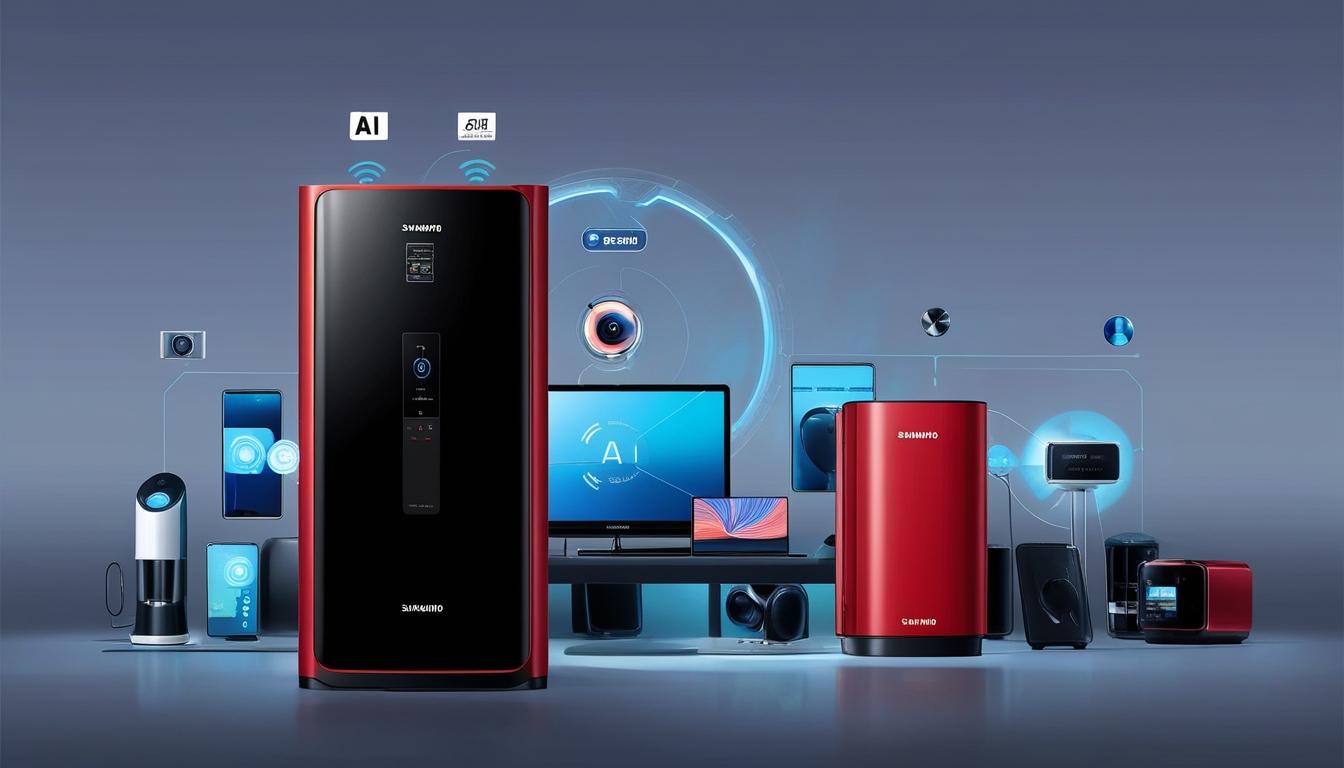Samsung Electronics Co., a South Korean multinational corporation, is intensifying its investment in artificial intelligence (AI) to enhance its consumer electronics offerings. The company is strategically positioning itself to embed machine intelligence across a wide range of gadgets, including smartphones and televisions. This initiative aims to solidify Samsung’s status in the growing AI landscape.
During a press conference at the Consumer Electronics Show (CES) in Las Vegas, Samsung’s chief executive officer Han Jong-Hee articulated the company's ambition of connecting over half a billion devices sold annually. This effort is part of a broader strategy to recover from missed opportunities in the AI sector, which has seen Samsung lag behind competitors in recent years.
The company faced considerable challenges in 2022, with its share value plummeting by a third, primarily due to its inability to keep pace with SK Hynix Inc. in the competitive market for advanced memory products tailored for AI applications. The delays related to securing Nvidia Corp.'s approval for high-bandwidth memory further eroded investor confidence. Despite these setbacks, 2024 is shaping up to be a robust year for Samsung, although it has yet to achieve its goals in crucial technological segments.
In contrast to its competitors, such as Apple Inc., Amazon.com Inc., and Alphabet Inc.’s Google, Samsung’s approach includes embedding AI connectivity directly into appliances commonly used in households, such as refrigerators and washing machines. The company is actively incorporating AI chips into its products, including robotic vacuum cleaners, making them smarter and more functional.
Han Jong-Hee expressed the company's vision for innovation, stating, "Our goal is to create products that people have not experienced before." This vision extends to new AI features in Samsung's television line, set to compete with Google’s TV software, aimed at offering consumers enhanced capabilities such as real-time translation, content analysis, and improved audio and video through AI.
AI is shaping up to be the largest component of Samsung's research and development expenditure, excluding semiconductors. Looking ahead, Han Jong-Hee indicated plans to escalate investment levels significantly starting in 2025. While he did not provide specific figures on spending, it has been reported that Samsung is procuring graphics cards from Nvidia and Advanced Micro Devices (AMD) Inc. for the expansion of its data centres in South Korea.
The company's SmartThings platform, crucial for the interconnected experience of its devices, currently has around 370 million users, a figure that has grown by approximately 20% annually over the past three years. This growth exemplifies Samsung's commitment to enhancing connectivity across devices and integrating AI into everyday consumer electronics.
In addition to its AI initiatives, Samsung has also outlined plans to invest $1.8 billion in Vietnam, further highlighting its aggressive approach to scaling operations and embracing advanced technologies in its product lines.
Source: Noah Wire Services
